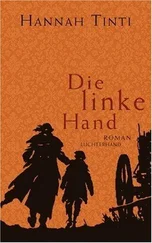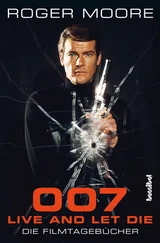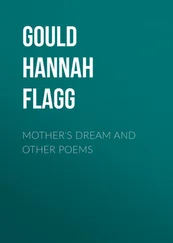I googled the name of every translator listed on my books, convincing myself that it was possible to make a living translating from home. Once I published my first book, I could reach out to museums, university presses, businesses in need of translators. It was even possible I would become one of those rare translators who made a name for herself, and I would be commissioned to translate all the works of some well-known contemporary French writer and the writer and I would become close friends and I would get one of those awards the French government likes to give foreigners whose contribution to Francophone literature is little known in their own countries. These were my actual thoughts. I found a room for rent on Craigslist and emailed applications to bookstores. That seemed like a good place to meet the right kind of people.
—
There were cupcakes in the conference room on my last day at Carp Weekly . Donnie gave me a hug that lasted too long. Sally made a speech congratulating herself for recognizing my potential. Joe approached me in the parking lot afterward. “Listen, if this is about the money,” he said, “I wish you’da talked to me. Donnie is a cheap fuck but I know how to force his hand.” I was embarrassed to have to shake my head no. When I told my dad I was moving to New York to become a translator, he mailed me a check for $4,000. “So that you can afford a nice apartment, not just slum it with a dozen roommates.” My father didn’t understand anything about New York rents, but the money would pay for my trip across the country and give me a few months to settle down.
I knew that I couldn’t tell Jared I was leaving or I would never leave. So I waited until hours before my planned departure to pack up my belongings. I convinced my roommate that he was lucky to have my IKEA furniture, so he could now advertise the room as furnished. I merged onto 84 East in a Corolla filled with nothing but clothes and books.
Only when I was two-thirds of the way across country did I let myself call Jared. He started crying as soon as he heard my voice. We said almost nothing, just sobbed into our respective phones for close to an hour, when Jared finally dragged himself away. I knew exactly where he was going.
BROOKLYN
I spent my first few days in New York shaky, jumpy, and wide-eyed, like a drug addict going through detox. There were no doors in the fourth-floor walk-up I shared with a filthy kleptomaniac and her elderly, one-eyed Yorkie. Barnes and Noble was the only bookstore that responded to my application.
The day before I started clerking there, I decided it was time to wear clean socks again and set out to conquer the Laundromat. I watched my wardrobe drown in murky water for a while before I realized that I hadn’t put in detergent. I couldn’t bring myself to ask the elderly Chinese woman punishing strangers’ garments at the back of the Laundromat if she sold detergent and if it was too late in the cycle to add it. I let the wash run its course and then transferred my dirty, sopping clothes to the giant cauldron of a dryer. I pretended to read a magazine in imitation of the people around me. “Dryer number seven!” the Chinese woman bellowed at increasingly hysterical volumes before I realized she was telling me to remove my clothes from the dryer so someone else could use it.
I dropped my warm, dirty clothes on the floor of my room, decided to go to the Met, took the wrong train, ended up in Queens, walked past a group of black guys wearing Afro picks and addressing each other as “My nigga.”
“Hey baby, you dropped something,” one of them called to me. As I looked at the empty sidewalk around my feet, he said, “My heart at first sight of that fine body of yours.”
“Why you wearin’ all black, sweetie?” another boy called. “Someone die on you?”
I hadn’t encountered many black people growing up in western Mass. I didn’t know if the jeers were threatening or enjoyable, an innocuous thread from the land of human contact. I took the train back to the Lower East Side. It was pouring. I sprinted into the first café I passed, brightly lit and Polish and filled with tiny, empty square tables. I ordered borscht with rye bread. The waiter nodded and walked away. He met my eyes as he put down the steaming, maroon soup. “Okay?” he said.
“Okay,” I said.
I picked up the bowl with both hands and gulped the salty broth. Onion and mushroom dumplings were hidden at the bottom. I ate them lovingly. I spent the next two hours in the café, drinking cup after cup of Lipton tea and watching the world outside the rain-streaked glass. A gray-haired man in soaked mesh shorts jogged past, squinting and making fists. A drunk leaned against the storefront, smearing the glass with his oversize denim jacket. A well-dressed, overweight woman held an umbrella in one hand and a phone in the other, gripping each so tightly her knuckles were white. A group of teenage girls passed by in high, high heels, walking slowly, feeling themselves walk. A man with a cane and a fedora took the table next to mine. He sipped a beer and carefully sliced his kielbasa. A white woman and a black woman shared a plate of pierogies in the front of the café, laughing loudly and eating with their hands. I could just make out Luther Vandross’s voice from the rear of the restaurant, telling the cooks and dishwashers that he just didn’t want to stop loving them. I had changed my life.
The next day, I woke up depressed by the thought of returning to the Chinese laundry and afraid of my comfort in the café. What if being alone doing nothing was the only way I could feel okay? I’d grow old drinking bad tea, listening to ’80s R&B, and overtipping immigrant waiters.
—
I met Brian a few weeks later, when we were forced to share a table at a crowded coffee shop. He had large green eyes that stared into his mug when he spoke, wire-rim glasses, carefully considered facial hair. He’d gone to UCLA for college — undergrad, he called it — and we chatted about the standard differences between the coasts. As he put on his leather jacket to head back to work, he said, “So, what’s your romantic situation?”
Jared and I spoke on the phone every day, but he didn’t know where I was. “I don’t have a romantic situation,” I said. Brian smiled and typed my phone number into his device.
He took me to a movie the following weekend, and then we shared his umbrella on the walk back to his apartment. Brian said he liked how the heroine was beautiful but was never sexualized. The comment had its intended effect. I smiled at the glistening sidewalks; it was really going to mean something when this trustworthy man sexualized me.
I could not hide my shock at how nice Brian’s apartment was. The only other New York apartments I’d seen were those of my coworkers, who shared railroad three-bedrooms in Bushwick between four people. Brian had a duplex with hardwood floors and exposed brick walls that overlooked Prospect Park. I put my hand on the spiral staircase that connected the living room to the upper bedroom and let my jaw drop. “My dad owns the building,” Brian said, looking at the floor. “He’s in real estate. But I pay rent.” I understood his embarrassment at parental help. But it made me feel even more confused by finances. Every once in a while my father sent a check, which made me feel rich because I never bought anything, since I also felt poor. I made ten dollars an hour at Barnes and Noble, working half-time as a way to signal to myself that translation was my real work. When my coworkers worried about student loans and maxed-out credit cards, I almost wished I too had the boundary of debt to help describe my place in the world. It was lonely to be both spoiled and blue collar, just one more way I was a stranger to what most people considered the real world.
Читать дальше












